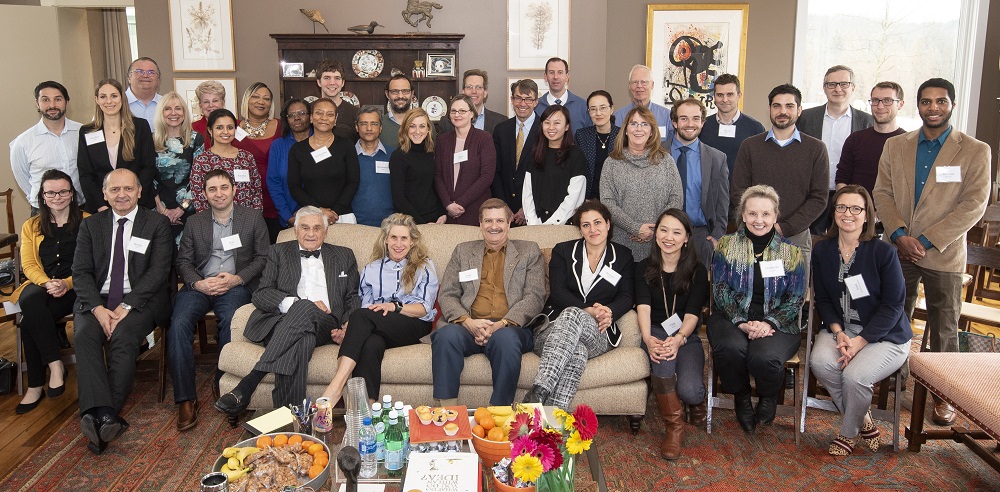Johns Hopkins UniversityEst. 1876
America’s First Research University
During Erwin Greenberg’s decade of service on the Sidney Kimmel Comprehensive Cancer Center’s National Advisory Board, he heard a lot about the discoveries being made in breast, pancreatic, and other cancer research. Then, he learned that the husband of one of his employees had died of bladder cancer — and the Baltimore-based real estate developer wondered why he hadn’t heard much about that particular type.
“Everyone is looking for cures for cancer, but bladder cancer seemed to be swept under the rug and not investigated as much as it should have been,” Greenberg says.
He and his wife, Stephanie Cooper Greenberg, sought to rectify that problem in 2014, when they partnered with Johns Hopkins University on a $45 million investment to establish the Greenberg Bladder Cancer Institute (GBCI). At the time of its founding, the GBCI was considered the only institute of its kind and had a goal to create a global network of partnerships aimed at improving the understanding, diagnosis, and treatment of bladder cancer.
Bladder cancer is more prevalent among men but more lethal among women, who tend to be diagnosed at later stages of the disease. The standard treatment of bladder cancer for decades involved chemotherapy and, often, removal of the organ. But in recent years, the FDA has approved of the use of immunotherapy drugs for bladder cancer, helping open the door to new — and less life-altering — treatments. Clinician-scientists in the GBCI, led by director David McConkey, are building on this progress, working with partners around the world to study how DNA sequencing and RNA expression profiling can help determine the best course of treatment for individual patients. Researchers are also exploring the relationship between gender and genetic differences in bladder cancer, comparing outcomes for those who undergo bladder-sparing versus non-bladder-sparing procedures, and many other projects.

“There has really been a dearth of significant funding for bladder cancer. The funding available for clinical studies and operations has been incredibly lean,” McConkey says. “Building our clinical operations and bringing genetic sequencing in as part of our workflow has been 100 percent dependent on the Greenbergs’ support.”
That support isn’t limited to just finances. Once a year, the Greenbergs host a retreat for dozens of GBCI staff and collaborators at their home in Baltimore County, about 20 miles northwest of the Hopkins Medicine campus. Attendees include experts in many disciplines, from oncology and urology to biomedical engineering, as well as nurses, patients, and survivors. The conversation focuses on the institute’s current and future endeavors.
“The institute is a very collaborative effort, and they allow us to participate. It’s rare that you see funders at the table as we have grown quite passionate,” Cooper Greenberg says.
A Johns Hopkins Bayview Medical Center trustee and member of several other Hopkins boards, Cooper Greenberg chairs the GBCI’s Bladder Cancer Support Group, too. Open to patients, survivors, and caregivers regardless of their connection to Hopkins, the group meets monthly in the Johns Hopkins Outpatient Center. Typical meetings include a guest speaker from the GBCI or elsewhere in Hopkins who helps attendees learn more about living with and beyond the disease.
“It’s very gratifying to be part of something that really helps people,” says Cooper Greenberg. “We like to be helpful to people in need. That’s what guides us every day.”
Interested in supporting collaborative medical research efforts like the Greenberg Bladder Cancer Institute?
Topics: Friends of Johns Hopkins Medicine, Johns Hopkins Medicine, Fuel Discovery, Promote and Protect Health